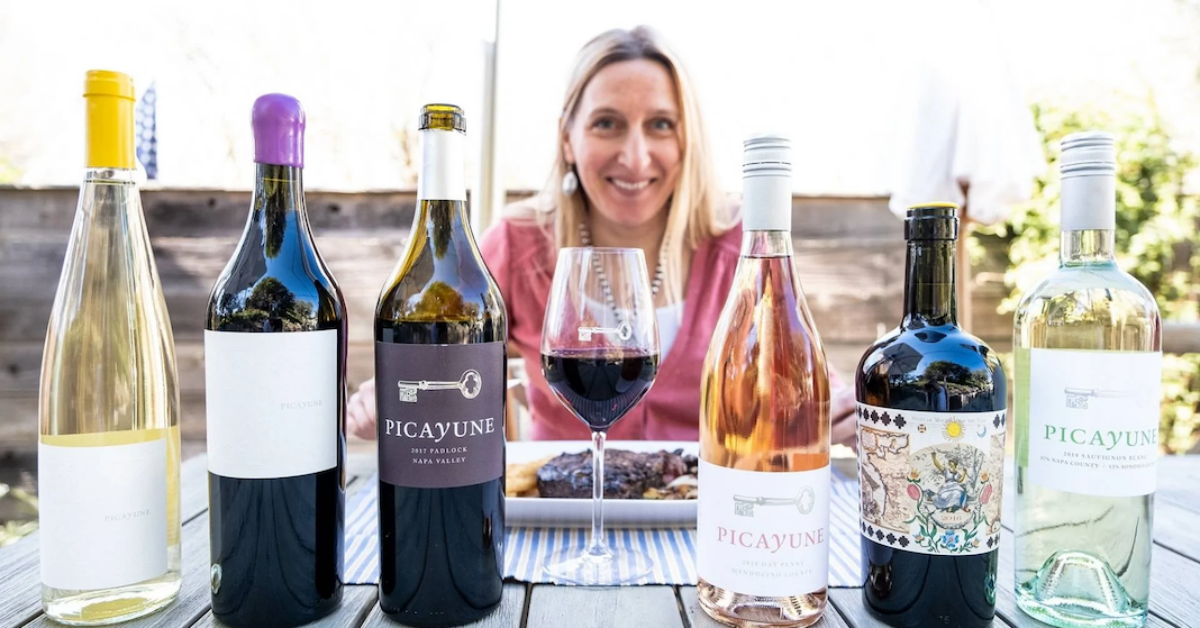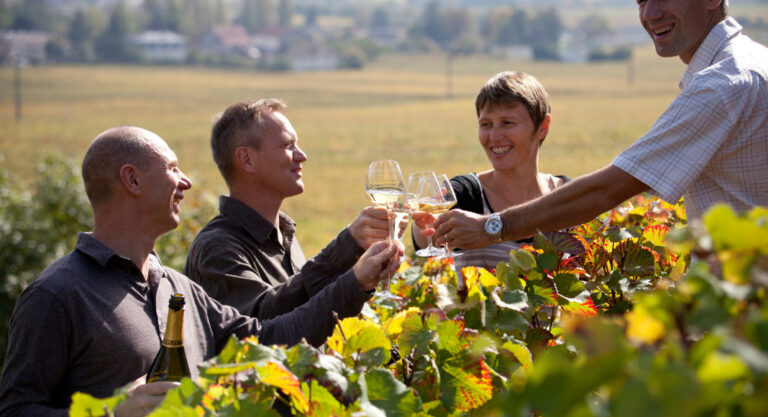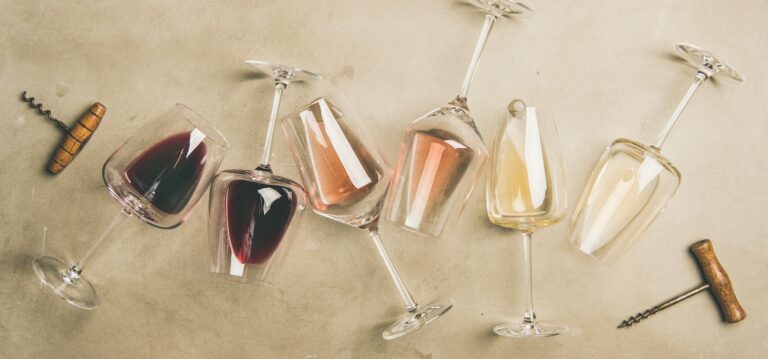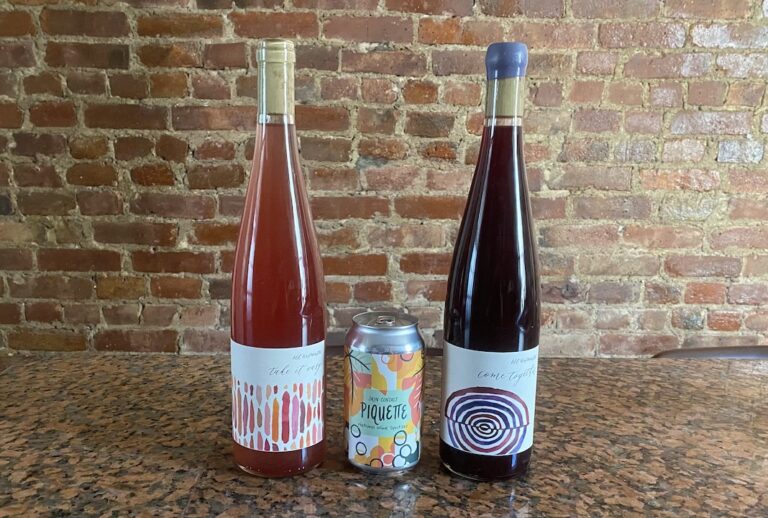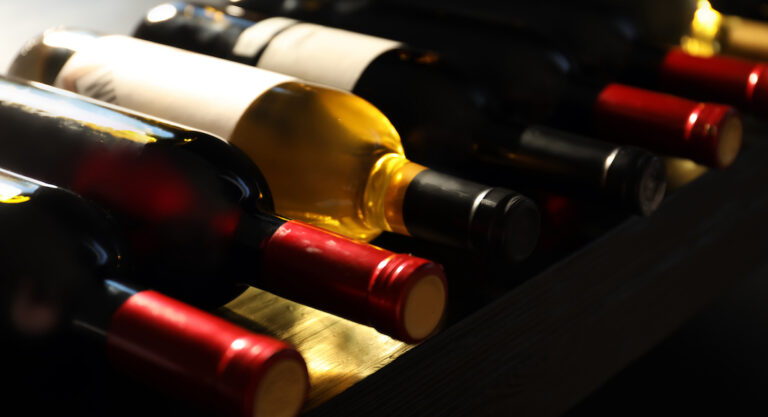“Truth is, I never thought I could work in the wine industry in France,” explains Claire Weinkauf, the owner of Picayune Cellars in Calistoga, California. “In my generation you would not really have had that many opportunities as a woman, except if your family was in the wine industry already and you didn’t have an older brother.”
Weinkauf grew up in Auvergne, in the heart of France, far from well known wine regions like Champagne or Bordeaux. She fell in love with the wine industry during time abroad in Chile, and started taking classes at a university in Santiago before returning to France to work in vineyards. She was then offered a job in Argentina by winemaker Paul Hobbs, and her work later brought her to California. Once in the U.S., she started a wine consulting business to offer marketing and business advice to small- and medium-sized wineries.
It was in 2011 that Weinkauf decided she’d had enough of overly bold, highly extracted California reds, and decided to bring a refined French touch to her own small collection of wines. “It was hard for me to find California wines that I enjoyed stylistically, and when I did, they were really expensive and I couldn’t really afford them. They might have been a little too bold and rich and extracted and alcoholic. I would find wines that were not, but in general, those were harder to find and were very expensive.”
Weinkauf operates Picayune in a particular role that has often been overlooked or misunderstood in the wine industry: that of a négociant.
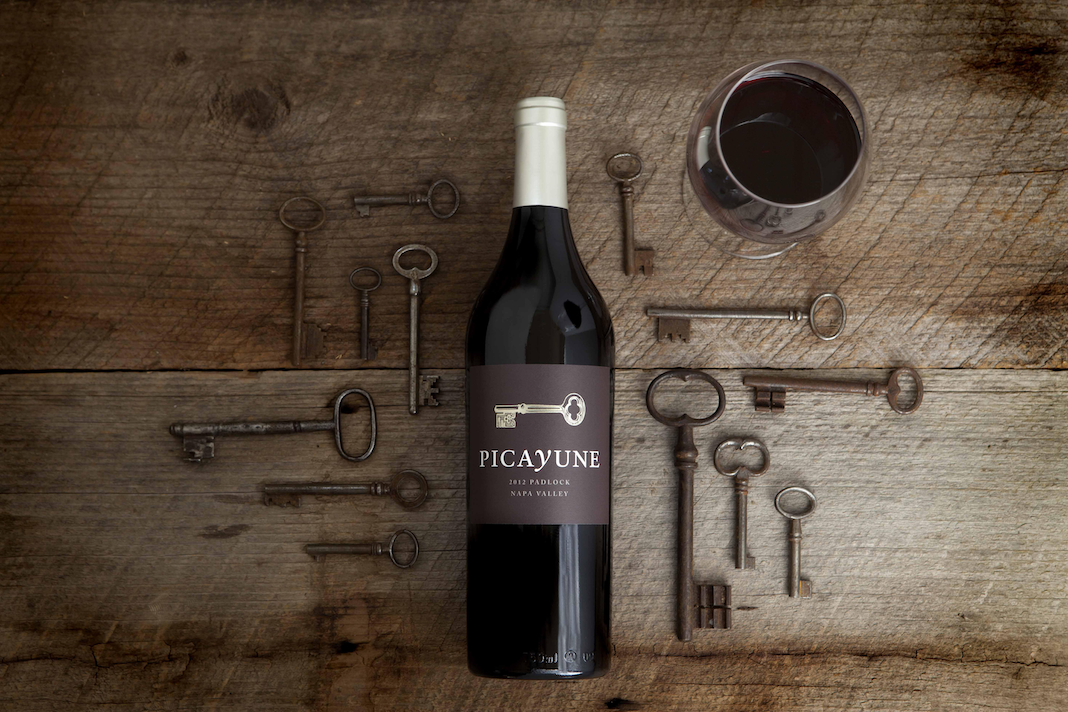
What is a wine négociant?
“Being a négociant, I don’t own a winery and I don’t own any vineyard, so I buy fruit, and I use a custom crush facility.” The Napa facility, which is a shared space used by a variety of clients for blending, filtering, and bottling, provides resources for alternate proprietors with a bond in the winery, like Picayune. Weinkauf buys grapes and pre-crushed juice, or must, and then blends and ages the products of other vineyards into her own custom wines.
“I’ve had people tell me, well, if you don’t have a vineyard and you’re buying juice for that wine every year, how can you have consistency? It’s a good question, but I can have consistency because my vision for that wine remains the same. So when I assemble the wine and when I pick those barrels, I know what I’m looking for and I know how to put it together. I just need to find the parts. Whereas if you are a winery and it’s a bad year, you are stuck with what you have.” She also notes that many larger wineries buy juice in years when a bad harvest has left them short of their production goals, though few admit it publicly.
Weinkauf has developed relationships with a number of wineries she has bought from since the beginning, taking their products and blending them into something unique, all under an umbrella of confidentiality.
“It’s been done in France forever. As a matter of fact, way back when, the vineyard owner would work the vineyard and then they would harvest and ferment, and then the négociant would come and get the barrels and then age them, blend them, and sell them. It was a normal thing to do… I think it’s something that is done everywhere, just not talked that much about.”
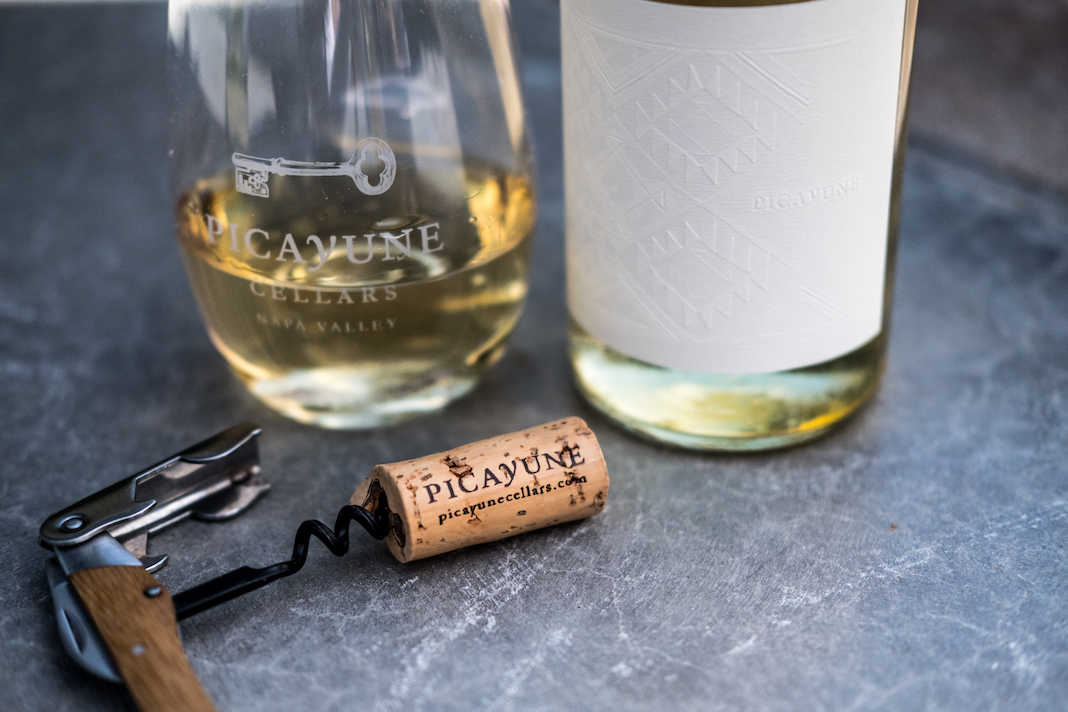
California vs. French wines
The result of Weinkauf’s arrangement is a collection of beautifully made wines that make the most of California grapes and French savoir-faire. “That intensity and purity of fruit that you can find here in California is fabulous. But it is true that the wines of California tend to be richer or more extracted, especially the modern wines of California.” A highly extracted wine, she explains, is one where grapes have been allowed to ripen for a long time before being harvested, resulting in a wine that is richer, more tannic, and darker in color, with a concentrated flavor and a high alcohol content. “I personally like a little bit more restraint in the palate and it’s because I like to drink more than one glass. And if I was drinking two modern extracted wines, I’d get palate fatigue, it’s too much, and it’s too alcoholic. Plus I also really grew up in an environment where wine was really a component of the food experience. And so if the wine is so overpowering that you don’t taste the food anymore, then it’s just a real bummer.”
Because négociants don’t have the same expenses as full scale wineries, they are able to create wines at more competitive prices. “When I started Picayune, the goal was that I wanted to make wines that are approachable financially. And I realize on a European spectrum and on some level American spectrum, it’s still expensive, but I feel that for the quality we deliver, we are much more affordable than many.”
Early on in Picayune’s history, the three Michelin star restaurant The French Laundry began carrying two Picayune wines, which at the time retailed for under $30 each. “It was a huge kind of recognition of what we were trying to do: wines that are great, but that are still affordable for people.” Picayune wines currently range from $26 into the hundreds for older vintages.
Women in wine
As a woman in the male-dominated wine industry, Weinkauf is glad to see the way that things have changed since she started out. “Even when I go back to France now and I see the state of the industry, it is so different, it’s really democratized, which I think is the best thing that could have ever happened there. People that were not born into the industry now can access the industry, which honestly wasn’t happening before.”
This didn’t happen by accident, however. “The biggest thing for me has been to realize that women, we’ve not been doing what men were doing, which was helping and supporting each other to grow,” Weinkauf says, explaining the decisions she has made to focus on meeting and working with women in the wine industry whenever possible. “You know what, if I have a brilliant woman and a brilliant man, right now I’m just gonna go with the brilliant woman because guess what, you guys have done that for a long time before us.”
Picayune wines are currently available for sale directly through their website, at their tasting room in Calistoga, and in stores in Louisiana, Texas, New Mexico, and New York.
Top Picayune Pics
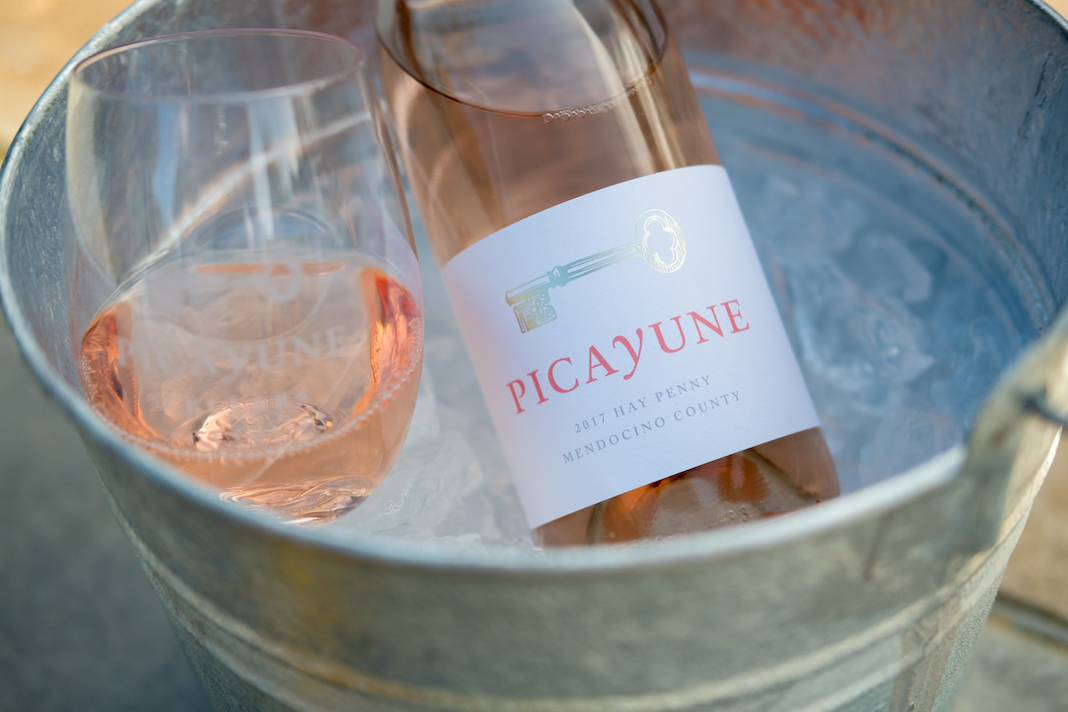
‘19 Picayune Padlock, Napa Valley, Napa Bordeaux Blend – Claire’s signature blend
Intense fuchsia color, exuberant nose of ripe blackberries and cassis with hints of mocha aromas. On the palate, Padlock opens up on dark fruits with seductive truffle and dark chocolate notes. The texture is rich and intricate, the tannins are firm. Enjoy this inspired blend on its own, or pair it with steak au poivre or anything else that inspires you!
‘21 Picayune Albariño, Russian River Valley
Sourced from the Rusty Gate Farm in Russian River Valley, this limited-production Albariño exhibits stone fruit on the nose, especially ripe peach. The palate is fresh and rich. Pairs best with sea bass, any kind of ceviche or anything else that inspires you.
‘22 Picayune Hay Penny Rosé, Sierra Foothills, Syrah
Boasting fresh bursts of watermelon and raspberry, this is a bright and joyous wine to celebrate the arrival of spring and drink all year along. Drink on its own or pair with a caesar salad or fish tacos.
Picayune’s New Calistoga Tasting Room
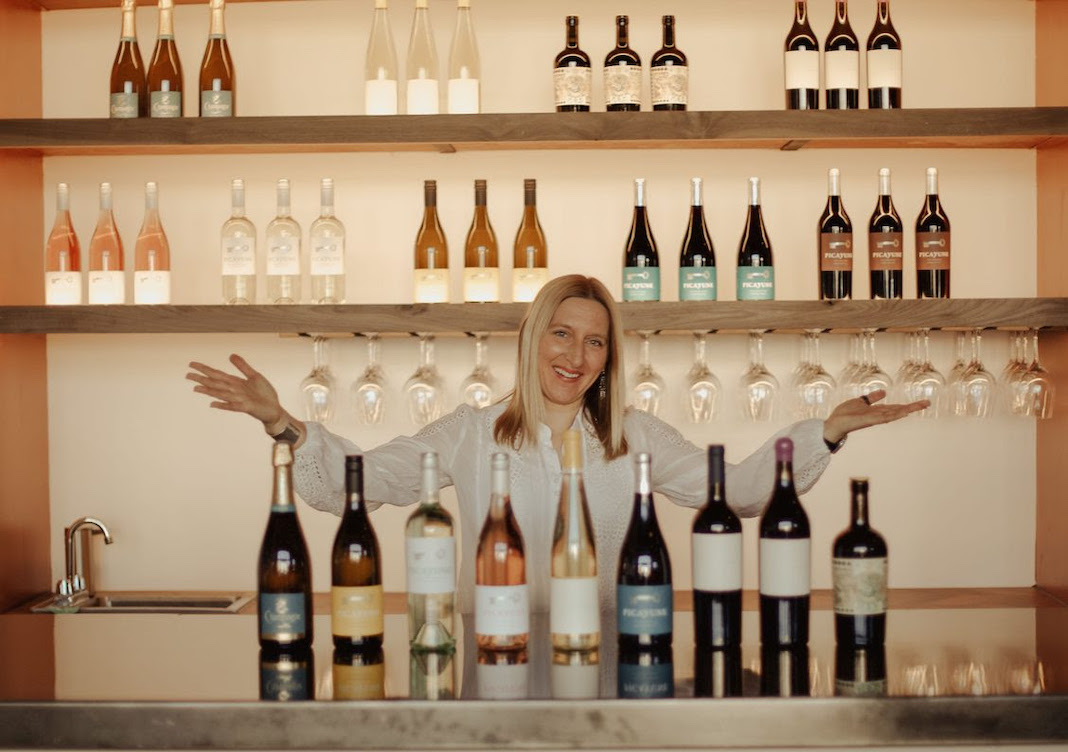
Picayune recently opened a new tasting room in downtown Calistoga. The new and expanded location will offer a monthly rotating lineup of pop-up chef dinners, showcasing some of the best chefs in the region alongside expertly paired Picayune wines. The new location also offers live music every Friday, wine club member parties, and can be booked for a private luncheon or dinner paired with Picayune wines.
“Each Picayune wine champions my belief in making approachable wines that are seamlessly incorporated into everyday life, as well as big and small milestones. My team and I are passionate about creating a memorable experience for our guests,” Weinkauf said about the new location, adding: “Picayune is not only wine, it is also a lifestyle.”
—
Catherine Rickman is a writer and professional francophile who has lived in Paris, New York, and Berlin. She is currently somewhere in Brooklyn with a fork in one hand and a pen in the other, and you can follow her adventures on Instagram @catrickman.

